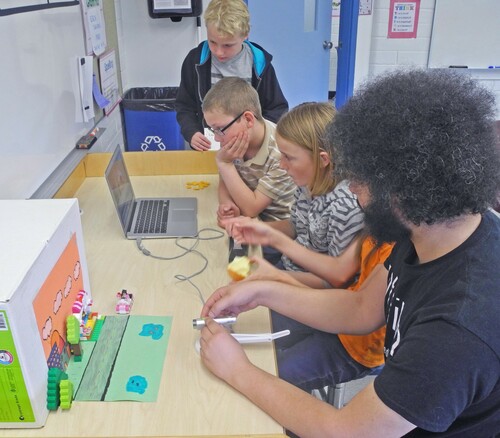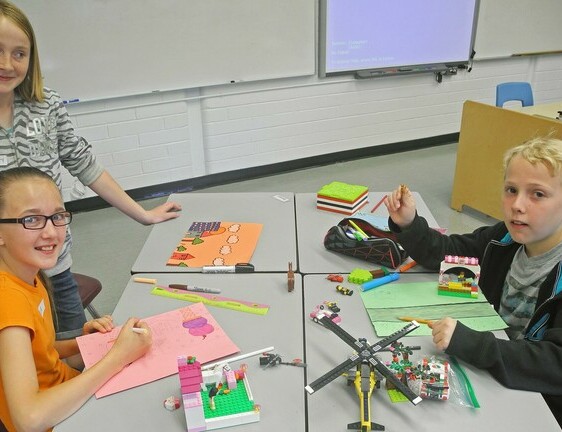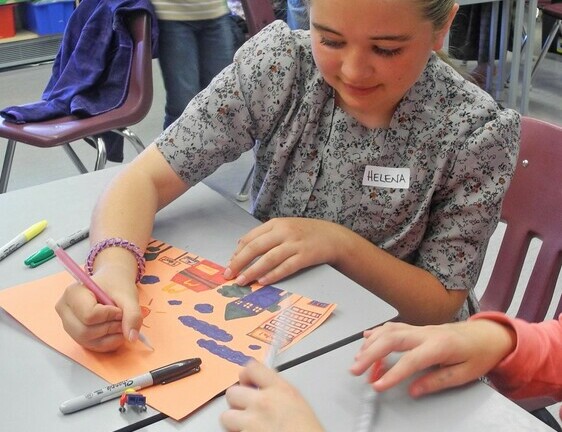
IRON SPRINGS – When a majority of students walk through the doors of Huntsville School each day, they do not bring from home a great familiarity with either technology or literacy.
A recent series of digital media workshops immersed many of those predominately Low German-speaking Mennonite students in both, and the results were even better than expected.
Huntsville students in grades 3 through 9 received hands-on training in stop-motion animation, movie trailers or digital graphic novels from The Director’s Cut, an educational company. The project became a reality thanks to an initiative by Palliser Regional Schools to use technology to support the goals of individual schools.
“It was a fantastic experience,” said Principal Chris Spanos. “Not only was it exciting to see how attentive and engaged the students were through the process and interested in working in a different area to support literacy, we have an end-product.”
Examples of the students’ work that day were shared with the rest of the school and the larger community during an assembly to highlight the value of technology in a child’s education.
The workshop also generated excitement among the teaching staff, said Spanos. The school doesn’t have access to the same type of equipment found in The Director’s Cut mobile film and imaging studio, but it will look into professional development opportunities to allow teachers to tackle similar projects using available technology like smart phones and computer tablets.
Palliser’s Technology Support Initiative – funded through province’s Learning Technology Policy Framework – can provide that ongoing assistance.
Jason Kwasny, Palliser’s Technology Integration Specialist, first surveyed staff and students to get a better idea of the school’s priorities and how technology might support them. Literacy is a priority across Palliser, and Huntsville offers unique challenges given the makeup of the surrounding community.
“We have some students come in, some as high as upper-elementary grade levels, that don’t have any English at all,” said Spanos. “That doesn’t happen as often any more, but it gives you a bit of an idea how much exposure to the language many of our beginning elementary students have.”
Recognizing a high percentage of his students are not reading at grade level, he was looking for a means to develop an excitement about literacy. The digital projects introduced by The Director’s Cut certainly grabbed the students’ attention.
While it’s a departure from the traditional pen on paper, Spanos said the planning required of students to put together those movie clips is very comparable and the skills transferable.
“To me, storyboarding is basically a form of coming up with an outline, brainstorming,” he said. “If they were going to write a story, that’s still an important skill set to be able to map things out and sequentially see how you are going to put that story together.”
The technical support offered to Huntsville School also included Kwasny’s work with the student leadership team to help them put together multimedia presentations for school assemblies and the like. Now armed with newfound skills, they will be able to mentor and support other students.
Eight schools benefited from the Technology Support Initiative this year through various projects and the goal is to offer support to the remaining Palliser schools this coming school year.





